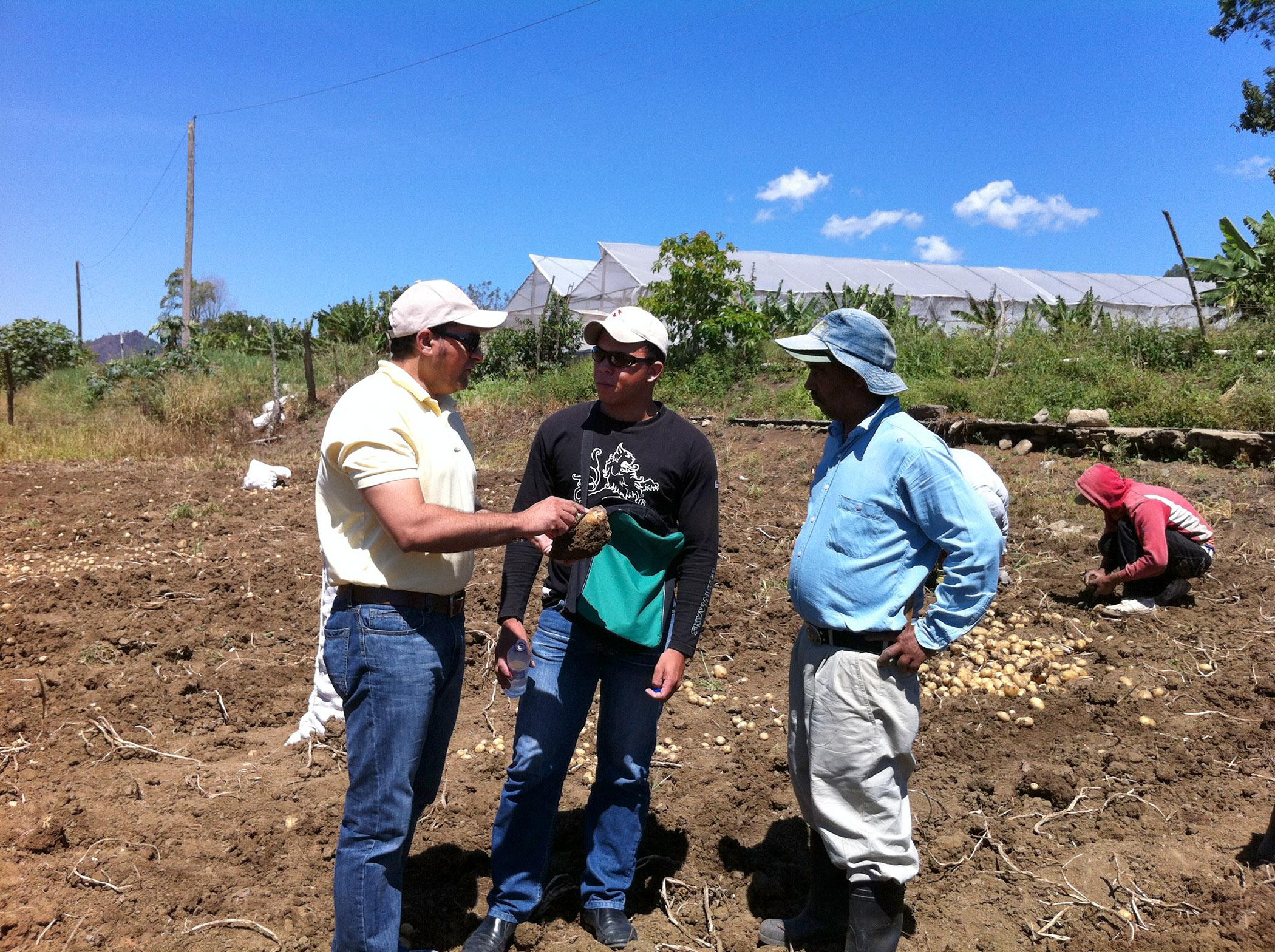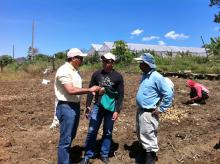Information Possibly Outdated
The information presented on this page was originally released on September 20, 2012. It may not be outdated, but please search our site for more current information. If you plan to quote or reference this information in a publication, please check with the Extension specialist or author before proceeding.
Training helps reduce world hunger, poverty
PASCAGOULA -- Barakat Mahmoud is one of many Mississippi State University scientists whose work improves the safety and security of the global food supply.
The world population topped 7 billion in March 2012 and is expected to exceed 9 billion by 2050. Feeding this many people puts tremendous pressure on the food industry.
“As food scientists, we are obligated to find solutions to increase food production and find new ways to reduce losses during harvest and processing,” said Mahmoud, an MSU assistant research professor of food safety and microbiology. “We are dedicated to finding ways to secure enough food to feed the world’s growing population.”
Mahmoud, who holds a joint appointment with the Mississippi Agricultural and Forestry Experiment Station and the MSU Extension Service, recently spent two weeks in the Dominican Republic teaching Good Agricultural Practices and Good Handling Practices to more than 50 farmers, packers, Extension agents, professors and regulatory agents.
The guidelines, known as GAPs and GHPs, were issued by the U.S. Food and Drug Administration in 1998. The practices are aimed at eliminating food safety hazards that can occur during growing, harvesting, cleaning, washing, sorting, packing and transporting unprocessed foods, such as raw fruits and vegetables.
“Despite the fact that the United States has one of the strictest food safety systems in the world, we have seen an increase in recalls and food-borne illness outbreaks linked to imported vegetables and fruits,” Mahmoud said. “These outbreaks have proven to be devastating for consumers and producers.”
For example, Mahmoud said four outbreaks of salmonella that occurred in the United States were associated with the consumption of cantaloupe imported from Mexico from 2000 to 2002. Two deaths were linked to the outbreaks.
“As a result, the FDA implemented stringent inspection guidelines, and cantaloupe shipments from Mexico steadily decreased from more than 400,000 in 1999 to zero by 2003,” he said.
The type of event that decimated Mexico’s cantaloupe business can be prevented or minimized by proper food-handling techniques. Workshops that teach these techniques can help the agriculture industry avoid such catastrophes.
“An incident like the one that happened in Mexico could very easily happen in the Dominican Republic if GAP and GHP guidelines are not implemented,” Mahmoud said. “Agriculture is the second largest industry in the Dominican Republic and accounted for more than $94.5 billion, or 6.7 percent, of the gross domestic product in 2011. The economic losses would be enormous, not to mention the health risks it could pose.”
More than 50 percent of the Dominican Republic’s export revenues come from the United States. The country is one of the world’s largest exporters of organic bananas and organic cocoa. Tomatoes, peppers and yucca are the largest conventionally grown crops to be exported and are targeted to ethnic markets in the United States. Canada, Western Europe and Japan also import its goods.
“Implementing GAPs and GHPs is an important step in the ability to export the country’s produce,” Mahmoud said. “Consumers in the export markets demand higher quality products that meet safety standards.”
Mahmoud has conducted trainings related to food safety and preservation in the United States, Canada, Egypt, Japan, Malawi, Mozambique, Oman, Portugal, South Korea, Thailand, United Arab Emirates and other countries.
His work is an integral part of MSU’s mission to improve food safety and reduce chronic hunger worldwide.
“Mississippi State University is devoted to the advancement of food safety and security across the globe, and Dr. Mahmoud’s work plays a significant role in the progress of these issues,” said Sam Chang, head of MSU’s Department of Food Science, Nutrition and Health Promotion.
Mahmoud’s trip was sponsored by Partners of Americas through the Farmer to Farmer program and supported by the U.S. Agency for International Development. The Farmer to Farmer program is committed to improving the local economies of rural Latin America and the Caribbean by increasing food production and distribution, promoting better farm and marketing operations, and conserving natural resources.



